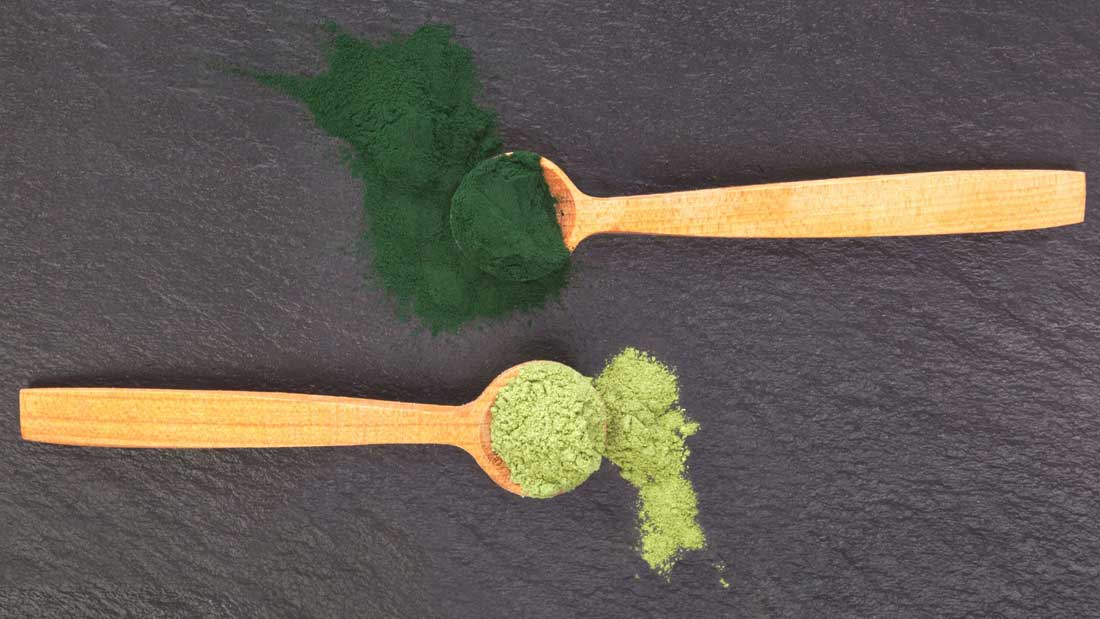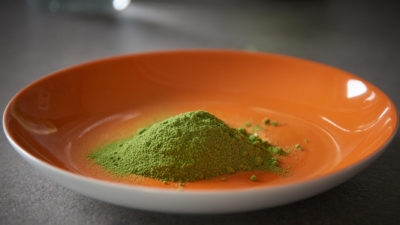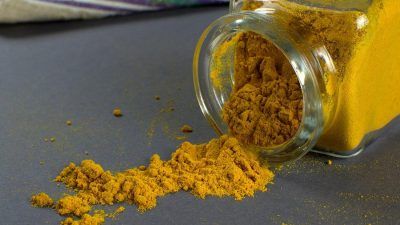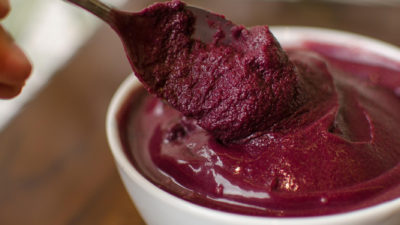Green powders – superfoods or a waste of money?

It’s green therefore it must be healthy – or does it?
Green drinks, green juices, green powders and the rest – it all sounds so wholesome. Marketing experts know this and often exaggerate a product’s benefits to make you believe you absolutely need it to be healthy. So here’s a look at the main types of green powders to see if they’re worth your money.
Chlorella
Chlorella is a tiny, bright green, freshwater alga that belongs among plants. It is rich in antioxidants and helps to reduce inflammation in the body. One study found it helped in the treatment of hepatitis C – it didn’t cure the disease but supported liver regeneration.
One tablespoon of chlorella powder contains over four grams of protein and can provide up to 11 milligrams of iron, which is more than the daily recommended dose for men and almost covers women’s daily needs. Chorella is also a great source of zinc, contributing around 30 per cent of your daily needs – and zinc is essential for a healthy immune system and wound healing.
On top of this, it offers sizeable doses of B vitamins, including B12 but the amounts can vary so it’s not recommended you rely on chlorella as your only source – and the same applies to vitamin C and beta carotene. Chlorella is surprisingly high in vitamin K, with one tablespoon covering your daily needs but be careful if you also take blood-thinning medications such as warfarin as it can amplify its effects. However, different chlorella products have a slightly different nutrient content so always check the packaging!
Both chlorella and spirulina may help to reduce your cholesterol levels and blood pressure. Scientists are not sure exactly how it works but the effect has been shown in several independent human studies.
Spirulina
Spirulina is a blue-green microalga that belongs among bacteria and usually grows in lakes and ponds. It contains a good dose of antioxidants that protect your cells and DNA from damage and lower inflammation in your body. Spirulina has been also shown to improve blood sugar control, which is particularly useful for diabetics (chlorella has a similar effect).
One tablespoon of spirulina powder contains four grams of protein, several B vitamins, small amounts of vitamins C, E and K, and beta carotene, from which your body makes vitamin A. It also offers two grams of iron, which is a great boost when the recommended daily dose is 8.7 milligrams for men and 14.8 milligrams for women. Lastly, it provides over 20 per cent of your recommended copper intake and that’s an important mineral, essential for a healthy metabolism.
The disadvantage of spirulina is that it contains something called B12 analogues or B12 pseudo vitamin. It means that to your body, these molecules look like vitamin B12 and bind to B12 receptors but they don’t do anything useful and block the actual vitamin B12 from being absorbed. If you use spirulina and take vitamin B12 supplements, leave several hours between them.
Wheatgrass and barley grass
Both of these are young shoots of wheat or barley, dried and ground. They contain varying amounts of beta carotene (vitamin A) and vitamins C and K – see the nutrient label on each product for details. Both are also sources of calcium and iron, with wheatgrass having more iron and barley grass having more calcium.
Wheatgrass and barley grass contain a wealth of antioxidants and so can help protect your health, boost the immune system and help with some chronic inflammatory conditions. However, there aren’t enough human studies to draw any other conclusions about these grasses just yet.
Green superfood blends
There’s been a boom of various green powder blends promising the world. The problem is, each contains a different mixture of plants, algae, mushrooms and other ingredients.
The good thing is, they can increase your nutrient intake, energy levels and improve blood sugar and cholesterol levels. The bad thing is, they might not do much at all or may even cause digestive or other issues and you won’t know which ingredient is the culprit.
Many green blends contain alfalfa, which can be an issue for people with autoimmune disorders, those who are pregnant or breastfeeding and those with hormone-sensitive conditions such as breast cancer and endometriosis.
Always read the ingredients and nutrient content of the product to make an informed decision. Some of these green powders may be useful for busy people or those who travel a lot and can’t always find fresh, wholesome foods. If you take prescription medication, it’s best to check with a pharmacist about possible interactions.
What do they all have in common?
Many of these powders contain the essential omega-3 fats but because we consume them only in small amounts, it’s nowhere near enough to cover your daily needs. You may see some advertised as an omega-3 source but that’s not a fair claim. There are other omega-3 supplements made from microalgae that are a great choice but these are concentrated oil capsules – powders simply don’t contain enough.
Another thing green powders have in common is that they tend to be rich sources of vitamin K and too much can interfere with some blood-thinning medications. Talk to your doctor about green powders if you take these meds.
Bottom line
Green powders can provide a welcome nutrient boost but won’t make up for a bad diet. You can get plenty of all the important nutrients without them from a wholesome vegan diet. However, if you want to top up your diet, go ahead but stick to recommended doses and bear in mind that spirulina can block your B12 absorption. Chlorella may be the best one to try.
Some people may benefit from green powders more than others – for example when you have increased nutrient and antioxidant needs because you do sports, are recovering from an illness, have an inflammatory condition or are a smoker. Just remember, a spoonful of green powder doesn’t replace fruits and vegetables – you still need those!







